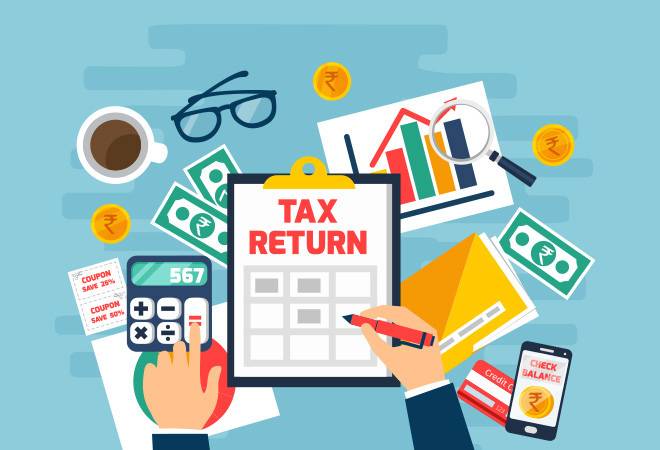What is a Tax Return?

A Tax Return is an essential process for reporting your income, taxes paid, and potential deductions to the tax authorities, typically the Internal Revenue Service (IRS) in the United States. It ensures that you’ve paid the correct amount of taxes based on your earnings for the year, and it may result in either additional taxes owed or a refund if you overpaid. Filing a tax return is not just about meeting legal requirements; it’s also an opportunity to optimize your financial position through eligible deductions and credits.
Why Do You Need to File a Tax Return?
Filing a tax return is required for most individuals and businesses to remain compliant with the law. Here are some of the primary reasons:
- Meet Legal Obligations: U.S. residents and those earning income in the U.S. are generally required to file a tax return if their income exceeds a certain threshold. This ensures that the IRS receives accurate information about your taxable income and allows the government to assess your tax liability accurately.
- Claim Refunds: If you’ve overpaid taxes through payroll deductions or estimated payments, filing ensures you get your money back. This can make a significant difference to your annual finances.
- Avoid Penalties: Failure to file or pay taxes on time can result in fines and interest charges. These penalties can accumulate quickly and may create unnecessary financial stress.
- Access Tax Credits and Benefits: Filing allows you to claim credits such as the Child Tax Credit, Education Credits, or Earned Income Tax Credit, which can reduce your tax liability or even increase your refund. Some credits are refundable, meaning you could receive money even if you owe no taxes.
How Does a Tax Return Work?
The process of filing a tax return involves several key steps, each designed to ensure accuracy and compliance:
- Gather Your Financial Records: Collect income documents like W-2s (wage income), 1099s (freelance or investment income), and other relevant forms. If you own a business, gather all expense receipts, invoices, and profit/loss statements.
- Choose the Right Tax Form: Most individuals use Form 1040, while specific situations (e.g., non-residents or those filing simplified returns) require different forms like 1040NR or 1040EZ. The form you choose determines how you report your income and claim deductions.
- Calculate Income and Deductions: Sum up all your income sources and subtract eligible deductions, such as the standard deduction or itemized deductions. This step determines your taxable income, which is the basis for calculating your tax liability.
- Determine Tax Liability: Using the IRS tax tables or tax software, calculate the taxes you owe based on your taxable income. This step also involves factoring in any credits that apply to your situation.
- Submit Your Return: File electronically through e-File services or mail a paper return to the IRS. Electronic filing is faster, more accurate, and typically results in quicker refunds.
Who Needs to File a Tax Return?
The requirement to file depends on several factors, including your income level, filing status, and other circumstances:
- Income Level: Single filers under 65 generally need to file if they earn more than $14,600 in 2024. For those over 65 or filing jointly as a married couple, the threshold is higher.
- Filing Status: Different thresholds apply for married couples, heads of household, and dependents. For example, dependents with unearned income exceeding $1,250 in 2024 may also need to file.
- Special Circumstances: Self-employed individuals earning $400 or more annually must file a tax return. Similarly, non-residents with U.S. income need to submit a tax return using appropriate forms.
- Recipients of Advanced Payments or Credits: If you received advance payments for certain credits, such as the Premium Tax Credit, you may need to reconcile those payments by filing a tax return.
What Are the Benefits of Filing a Tax Return?
Even if you’re not required to file, doing so can be advantageous for several reasons:
- Claim Refunds: Ensure you receive refunds for overpaid taxes. Many taxpayers are eligible for refunds without realizing it, especially if they had income tax withheld from their paychecks.
- Access Tax Credits: Many credits, like the Earned Income Tax Credit or American Opportunity Credit, are refundable, meaning you could receive money even if your tax liability is zero.
- Establish Financial Records: Filed returns can be helpful for loan applications, immigration processes, or other official needs. They serve as verified proof of income and tax compliance.
- Track Tax Trends: Reviewing past tax returns can help you understand your financial growth and plan for future tax strategies effectively.
What Happens if You Don’t File a Tax Return?
Failing to file or pay taxes can lead to serious consequences:
- Penalties and Interest: The IRS charges late filing and late payment penalties, which increase over time. These can significantly increase your overall tax liability.
- Loss of Refunds: You forfeit refunds if you don’t file within three years of the original due date. For example, if you were owed a refund for 2021, the deadline to claim it would be April 15, 2025.
- Legal Consequences: In extreme cases, failure to file can result in criminal charges, including fines or imprisonment. However, the IRS typically works with taxpayers to resolve non-compliance issues before escalating.
How to Make Filing Easier
Filing taxes doesn’t have to be a stressful experience. Here are some tips to simplify the process:
- Use Tax Software: Tools like TurboTax, H&R Block, or IRS Free File guide you through the process step by step, ensuring accuracy and identifying potential savings.
- Hire a Professional: Tax advisors or Certified Public Accountants (CPAs) can handle complex filings, identify deductions, and offer guidance tailored to your situation.
- Organize Early: Start gathering documents and records well before the April 15 deadline. Early preparation allows you to address any discrepancies or missing information without the pressure of a looming deadline.
- Consider Electronic Filing: e-File is faster, reduces errors, and expedites refunds compared to traditional paper filing methods.
Final Thoughts
A Tax Return isn’t just a legal obligation—it’s an opportunity to ensure your financial affairs are in order and to claim the benefits you’re entitled to. By understanding the basics and preparing thoroughly, you can navigate the process with confidence and potentially save money in the process. Whether you choose to file independently or seek professional help, taking proactive steps will ensure a smooth and stress-free tax season.



